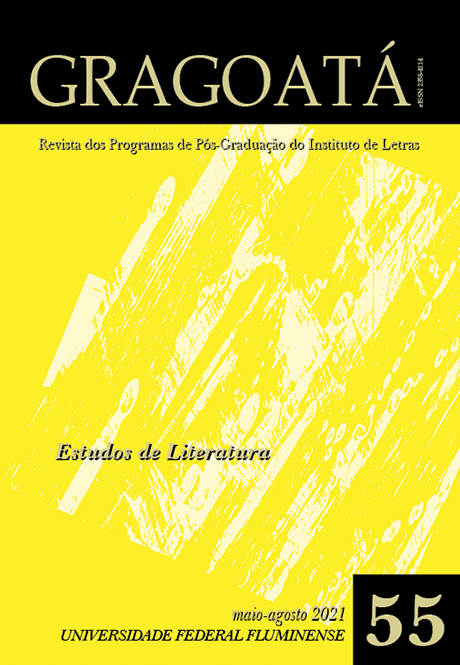Tell me Still, Angola the False Thing that is Dystopia
DOI :
https://doi.org/10.22409/gragoata.v26i55.47864Résumé
José Luis Mendonça’s book Angola, me diz ainda brings together poems from the 1980s to 2016, unveiling a constellation of images that express the unfulfilled utopian Angolan dream. Although his poems gravitate around his personal experiences, they reflect a collective past. They can be understood as what Walter Benjamin referred to as monads, as historical objects (c.f. Benjamin) based on the poet’s own experiences, full of meaning, emotions, feelings, and dreams. Through these monadic poems, his poetry establishes a dialogue with the past. The poet´s dystopic present is that of an Angola distanced from the dream manifested in the insubmissive poetry of Agostinho Neto and of the Message Generation, which incited decolonization through a liberation struggle and projected a utopian new nation. Mendonça revisits Neto’s Message Generation and its appeal to discover Angola: unveiling a nation with a broken dream and a dystopic present, denouncing a future that is still to come. The poet’s monads do not dwell on dystopia but wrestle conformism, fanning the spark of hope (c.f. Benjamin). They expose the false thing (c.f. Adorno), inciting the longing for something true: reminding the reader that transformation is inevitable.
Téléchargements
Téléchargements
Publiée
Numéro
Rubrique
Licence
AUTORIZAÇÃO
Autores que publicam em Gragoatá concordam com os seguintes termos:
Os autores mantêm os direitos e cedem à revista o direito à primeira publicação, simultaneamente submetido a uma licença Creative Commons Atribuição 4.0 Internacional (CC BY 4.0), que permite o compartilhamento por terceiros com a devida menção ao autor e à primeira publicação pela Gragoatá.
Os autores podem entrar em acordos contratuais adicionais e separados para a distribuição não exclusiva da versão publicada da obra (por exemplo, postá-la em um repositório institucional ou publicá-la em um livro), com o reconhecimento de sua publicação inicial na Gragoatá.
A Gragoatá utiliza uma Licença Creative Commons - Atribuição CC BY 4.0 Internacional.











